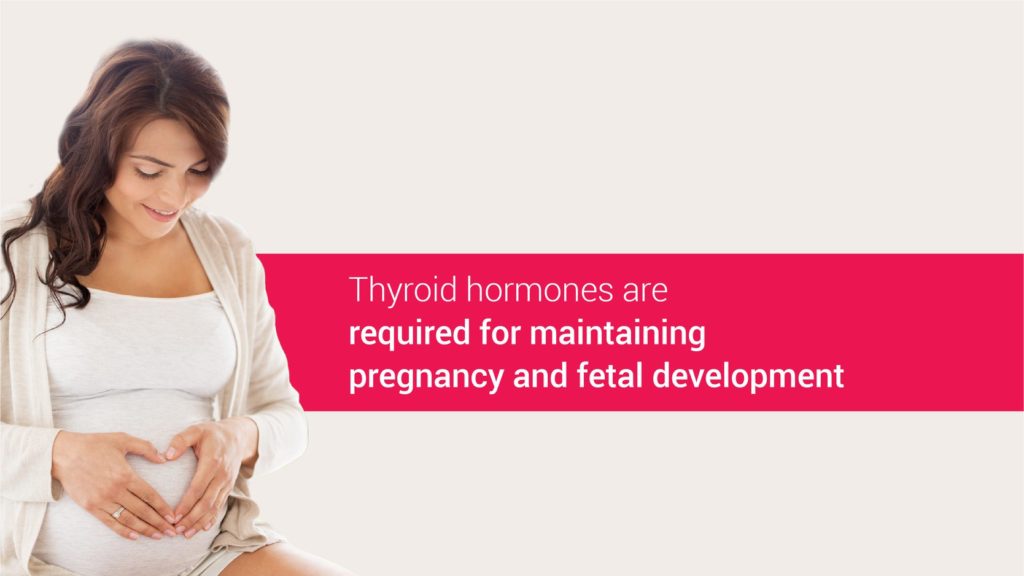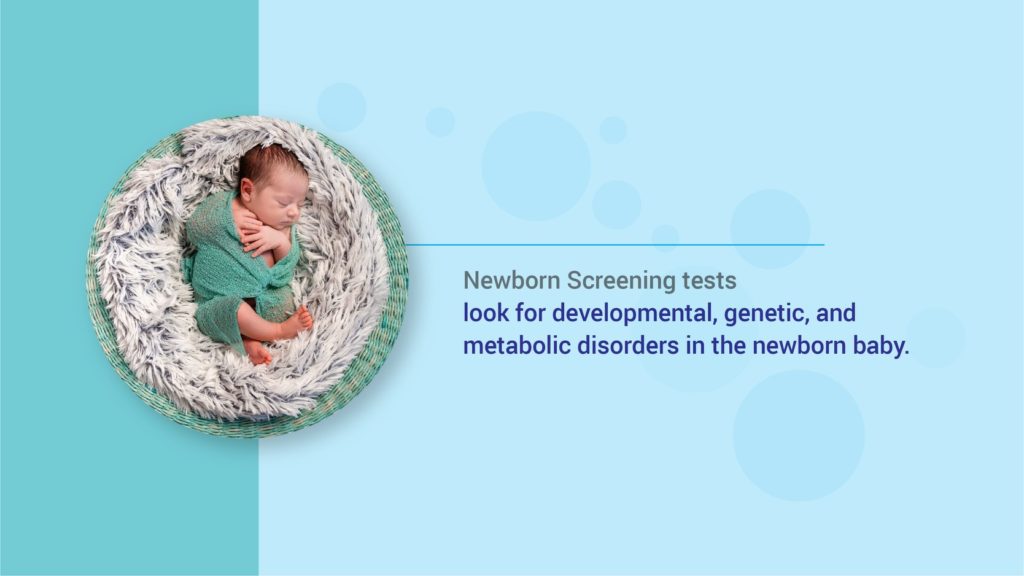Types of Thyroid Hormones
The thyroid secretes two hormones, tetraiodothyronine (T4) and triiodothyronine (T3). Thyroid-stimulating hormone (TSH) stimulates the thyroid gland to produce thyroid hormones. TSH is produced by the anterior pituitary gland which in turn is stimulated by TRH which is produced by the hypothalamus. TSH in turn stimulates the thyroid follicular cells to release thyroid hormones. Thyroid hormones (T4 and T3) through negative feedback mechanisms regulating the release of TSH levels with high levels of T3/T4 decreased TSH and low levels of T3/T4 increasing TSH levels from the anterior pituitary.
Maternal Screening:
Thyroid hormones are required for maintaining pregnancy and fetal development. It is well-established that overt thyroid disease is associated with adverse obstetric and offspring neurodevelopmental outcomes. Thyroid disorders are particularly common in women of reproductive age, and thyroid dysfunction is frequently encountered during pregnancy. Pregnant women are frequently asymptomatic. Recently there has been reports that suggest even cases of subclinical hypothyroidism (elevated TSH and normal FT4 concentration) is also associated with fetal loss, prematurity and impaired offspring cognitive function.
Neonatal Screening:
Congenital hypothyroidism is the most common cause of preventable intellectual disability. It is defined as thyroid hormone deficiency present at birth. Increasing incidence of congenital hypothyroidism in the overall population has been reported. Congenital hypothyroidism can be classified into transient and permanent CH depending on the duration of hormone deficiency. Treatment modality also differs in these cases.
Newborn screening to identify those with CH enables timely T4 replacement therapy and potentially prevents or mitigates this disability. It is currently based on measurement of TSH, T4, T3, concentrations in the whole blood. Other diagnostic studies like serum thyroglobulin (Tg) measurement, antithyroid antibody determinations, measurement of urinary iodine and radiological investigations like thyroid radionuclide uptake and scan and thyroid ultrasonography may be undertaken to determine an underlying etiology.
-By Dr. Nidaulla
In adult women, severe hypothyroidism may be associated with diminished libido and failure of ovulation. Secretion of progesterone is inadequate, and endometrial proliferation persists, resulting in excessive and irregular breakthrough menstrual bleeding.
Pregnancy Screening:
Complications are associated with both overt and subclinical hypothyroidism, although the impact has varied among different studies.50 A randomized prospective study of levothyroxine treatment in pregnant women with thyroid peroxidase (TPO) antibody positivity and normal range TSH showed that the increased incidences of preterm delivery and spontaneous abortion were reversed by treatment, although this finding remains to be confirmed.51.
Thyroid Function in Pregnancy and in the Fetus and Newborn.
The total serum T4 and T3 concentrations rise to levels about 1.5 times those of nonpregnant women owing to the increase in TBG concentration in the first trimester.
-By Dr. Laxman
Related Keywords:
Maternal Screening, Maternal Thyroid Screen, Neonatal Screening, Newborn Thyroid Screen, Pregnancy Screening, Screening for Thyroid Disease, Screening for Thyroid Dysfunction, Thyroid Function Tests, Thyroid Test, Types of Thyroid Hormones











Comments by admin